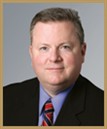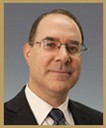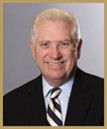
------------------------------------------------------------------------------
Wiretap charges

"It's kind of regrettable that the First Circuit
wasn't more specific ... The First Circuit didn't even mention the
distinction between secretive and non-secretive recordings. It
basically said that at anytime in whatever fashion, citizens are
allowed to record public officials carrying out their public
duties."
Former MBA Criminal Justice
Section Chair Peter Elikann, Herald News, Feb. 17
According to The Fall River Herald News, since 2008,
six people in Greater Fall River have been arrested on wiretap
charges. The Herald News' analysis of arrest reports in
Fall River District Court indicates police officers have arrested
people for video- and audio-recording them, on the basis that those
recordings were done without the officers' knowledge and violates
Massachusetts' wiretap law. However, a 2011 federal court ruling
appears to allow the public to record officers on the street, as
long as the recordings are done in an open and public manner. While
"it seems the First Circuit ruling nullifies the SJC decision since
federal law trumps the state trial court," in speaking with The
Herald News, Elikann said "it would be helpful if
Massachusetts clarified this on their own law books, once and for
all, either by the Supreme Judicial Court or by the Massachusetts
Legislature."
------------------------------------------------------------------------------
Conflict of interest

"This is a textbook case of conflict of interest.
It is riddled with potential, if not actual, conflicts ... It's in
the best interest of the administration of justice that Judge
Saylor step aside."
MBA Chief Legal Counsel Martin W.
Healy, Boston Herald, Feb. 16
Prosecutors in the criminal trial of former Probation Department
Chief John J. O'Brien have renewed their request for Judge F.
Dennis Saylor IV to recuse himself, citing a list of people tied to
the case that have been friendly with the judge in the past. Former
MBA Criminal Law Section Chair Peter Elikann also spoke to the
Boston Herald about the renewed request for Saylor to
recuse himself, saying "It's sort of the perfect storm ... There
are so many relationships here. Each and every one of them is not a
problem, it's the sheer weight and the number of relationships that
could create the appearance of a lack of impartiality."
------------------------------------------------------------------------------
Paid legal internships

"I think it's absolutely a step in the right
direction. It's the right thing to do."
MBA Labor & Employment Law
Section Co-Chair John F. Tocci, Boston Business Journal, Feb. 14
An American Bar Association Committee has recommended a change
to its policy that prohibits law students from being paid for
externships and internships when they are receiving school credit.
The Department of Labor allows for unpaid interns if their work is
"not of significant value to the employer." When speaking to the
Boston Business Journal Tocci favored a change to the rule
that would allow for paid internships, noting that "law firms
typically want their interns to produce work of value so they can
judge the interns' capabilities ... and the interns typically want
to produce valuable writing samples that they can use in their job
searches."
------------------------------------------------------------------------------
Tax policy

"It's really bad tax policy and it's really harmful
to lawyers and other people in professional services ... The way
the law practice works ... a lot of the work gets done before it
gets paid for. Or it never gets paid for. So you have huge write
offs."
MBA Vice President Christopher P.
Sullivan, Boston Business Journal, Feb. 7
Draft federal legislation has proposed a change to the way law
firms account for revenue. If passed, the new legislation would
change how law firms, with gross revenue of more than $10 million,
report and pay taxes. With the proposed change, firms would report
on their tax filings the amounts they have billed, even if the
bills haven't been paid. Currently, most law firms only pay taxes
on the profits they have received.